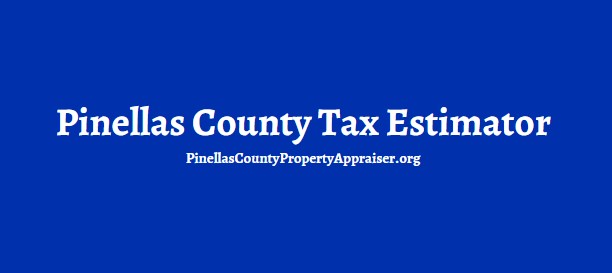Navigating the world of property taxes can be a daunting task, especially for new homeowners or those looking to purchase property in Pinellas County. Fortunately, the Pinellas County Tax Estimator is a handy tool designed to simplify this process. This guide will walk you through everything you need to know about using the tax estimator, understanding property taxes, and making informed decisions.
Pinellas County Tax Estimator
Property taxes are levies imposed by local governments on real estate properties. They play a crucial role in funding public services like schools, roads, and emergency services. Understanding how these taxes are calculated and how much you owe is essential for financial planning and avoiding surprises.
Overview of the Pinellas County Tax Estimator
The Pinellas County Tax Estimator is an online tool that helps prospective homeowners, loan underwriters, and others estimate the property taxes they might owe based on various factors. Whether you’re buying a new home or refinancing an existing one, this tool can provide valuable insights into your tax obligations.
How the Tax Estimator Works
The tax estimator calculates potential taxes based on the property’s purchase price, applicable exemptions, and current millage rates. Here’s a breakdown of the process:
- Inputting the Purchase Price: Start by entering the estimated purchase price of the property.
- Considering Potential Exemptions: The tool allows you to select from a range of exemptions, such as homestead, senior, or veteran exemptions.
- Understanding Millage Rates: Millage rates, set by local taxing authorities, are used to calculate your tax bill. The estimator uses recent rates to provide an estimate.
Types of Exemptions Available
Understanding exemptions can significantly impact your property tax bill. Here are some common exemptions available in Pinellas County:
- Homestead Exemption: Offers significant tax savings for primary residences.
- Senior Exemption: Additional savings for eligible senior citizens.
- Veterans’ Exemptions: Various exemptions for veterans, depending on their service and disability status.
Calculating Estimated Taxes
To get an accurate estimate, follow these steps:
- Enter the Purchase Price: This should be the most accurate number you have.
- Select Applicable Exemptions: Choose any exemptions you qualify for.
- Review the Estimated Tax: The tool will display an estimated annual tax amount based on the data provided.
Limitations of the Tax Estimator
While the Pinellas County Tax Estimator is a valuable tool, it’s important to note its limitations:
- Partial Homestead Use: The estimator may not fully account for properties partially used for homestead purposes.
- Specific Exemptions Not Covered: Some unique exemptions might not be included in the estimator.
Why Accurate Estimates Matter
Accurate tax estimates are crucial for financial planning. They help you budget for annual expenses and avoid unpleasant surprises when the tax bill arrives.
Tips for First-Time Homebuyers
If you’re new to property ownership, here are some tips for using the tax estimator:
- Understand Your Exemptions: Know which exemptions you qualify for and how they impact your taxes.
- Use the Tool Early: Get an estimate early in the buying process to budget accordingly.
Using the Tax Estimator for Loan Underwriting
Lenders often use the tax estimator to assess a borrower’s ability to cover property taxes. Accurate tax estimates can help ensure that your loan calculations are precise.
Advanced Features of the Tax Estimator
The tool offers advanced options, such as adjusting for additional property characteristics or customizing the millage rate used.
Keeping Up with Changes in Millage Rates
Millage rates can change annually based on local government decisions. Staying informed about these changes is important for accurate tax planning.
Comparing Property Taxes Across Counties
Property taxes can vary significantly between counties. Using tax estimators from different counties can help you understand regional differences and make informed decisions.
Conclusion
The Pinellas County Tax Estimator is an invaluable tool for anyone looking to understand their property tax obligations. By providing accurate estimates, it helps homeowners, buyers, and lenders make informed financial decisions. Don’t forget to explore all available exemptions and keep up with any changes in local tax laws.
Pinellas County Tax Estimator – FAQs
-
What if my property value changes?
You should re-check the estimator with the new property value for an updated tax estimate.
-
How often should I check the estimator?
Annually, or whenever there’s a significant change in property value or exemptions.
-
Can the estimator predict future tax increases?
No, it provides current estimates based on available data.
-
Is the tax estimator accurate?
While it’s a useful tool, actual tax bills may vary due to changes in exemptions, millage rates, and other factors.
-
What other tools can help me understand property taxes?
Property appraisers’ websites, financial advisors, and tax professionals can provide additional insights.
